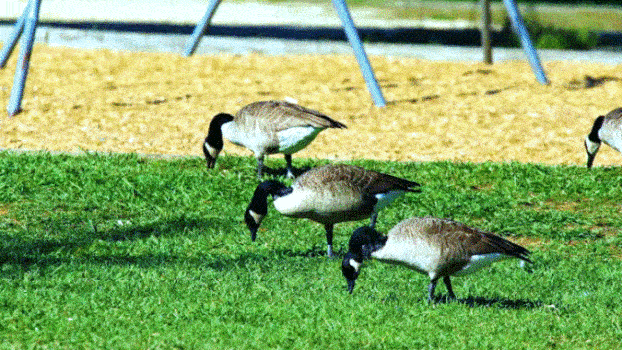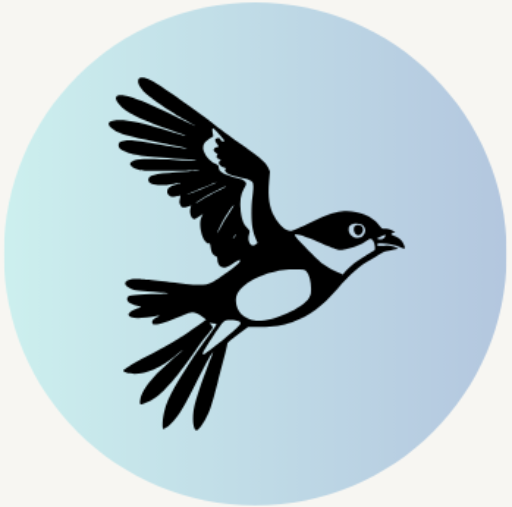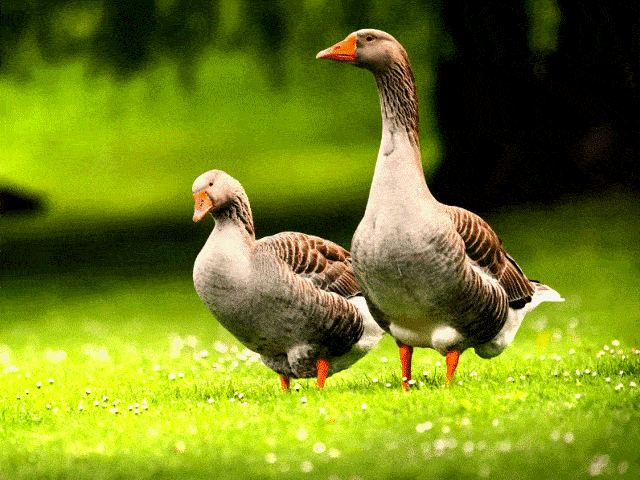Geese are primarily herbivorous birds, known for their partiality towards vegetation and grasses. Nonetheless, there have been perceptions recommending that geese may sporadically consume spiders as a component of their eating routine.
While spiders probably won’t be a staple nourishment for geese, their utilization adds an intriguing aspect to the dietary propensities of these avian animals.
This conduct features the versatility of geese and their capacity to enhance their food sources when essential. Understanding the periodic utilization of spiders by geese gives important bits of knowledge into their environmental job and dietary inclinations in normal living spaces.
Disclosing Nature’s Secret: Do Geese Eat spiders?
Welcome to our excursion into the universe of geese, those enchanting herbivorous birds that elegance our skies and streams. Today, we leave on an intriguing investigation: do geese eat spiders and different bugs? How about we dive into this spellbinding inquiry and reveal the reality behind these agile birds’ dietary propensities?
Overview of Geese as Herbivorous Birds:
Geese, with their exquisite structures and sweet calls, are prestigious as herbivores. They blossom with an eating routine of grasses, plants, and oceanic vegetation, adding to the magnificence and equilibrium of their normal territories. However, during their herbivorous way of life, interest calls: do geese eat spiders and different bugs?
Do Geese Eat Spiders and Other Insects?:
Presently, we should address the fascinating question head-on: do geese eat spiders and different bugs? While geese are prevalently herbivorous, there have been examples proposing their infrequent utilization of little bugs like insects. This way of behaving, however not all-inclusive, flashes interest and prompts us to investigate further.
Investigating Geese’s Dietary Habits:
To disentangle the secrets of geese’s dietary inclinations, specialists have directed examinations and perceptions. While certain discoveries show irregular bug utilization by geese, others stress their essential spotlight on vegetation. This unique transaction among herbivory and incidental insectivory adds profundity to how we might interpret these effortless birds.
Investigating the Environmental Effect:
Understanding whether geese eat spiders and different bugs reaches past simple interest; holds natural importance. Geese, as central members in their biological systems, impact bug populaces and vegetation elements. By getting a handle on the complexities of their dietary propensities, we gain bits of knowledge about the sensitive equilibrium of nature.

As naturalist Rachel Carson once said, “In nature, nothing exists alone.” This profound statement is to remember the interconnectedness of every single living being and the complicated trap of connections that administer our regular world.
Whether or not geese eat spiders and different bugs offers an enthralling look into the intricacies of nature. While geese dominatingly brush on vegetation, intermittent bug utilization adds layers to their dietary propensities. As we proceed to investigate and value the miracles of natural life, we should love the excellence and variety of every creature’s role in our shared ecosystem.
| Aspect | Description |
| Geese’s Diet | Essentially herbivorous, flourishing with grasses, plants, and amphibian vegetation. |
| Occasional Insect Consumption | A few perceptions propose geese might consume little bugs like insects every so often. |
| Factors Influencing Dietary Choices | Habitat, food accessibility, and species varieties impact geese’s dietary propensities. |
| Ecological Impact | Geese assume a pivotal part in keeping up with an environmental balance, affecting bug populations and vegetation elements. |
Primary Diet: Vegetation and Grasses:
Geese are eminent for their essential eating routine of vegetation and grasses. These herbivorous birds go through their days brushing on delicate shoots and verdant foliage, adding to the rich scenes they possess. However, amid their herbivorous propensities, there exists an oddity: do geese eat spiders?
Surprising Inclusion of Insects in Some Geese Species’ Diets:
While geese prevalently devour vegetation, it might come as a shock that a few animal categories at times integrate bugs into their weight control plans. These little animals, including bugs, add a protein-rich enhancement to their dinners, offering a brief look into the different dietary propensities for these avian marvels.
Factors Affecting Geese’s Dietary Choices:
A few variables impact geese’s dietary choices, forming their culinary inclinations in their normal environments. Ecological factors, for example, territory type and food accessibility assume a critical part, in deciding the assortment and overflow of food sources open to geese. Understanding these variables gives important experiences into the unique idea of geese’s dietary propensities.
In the expressions of Aldo Leopold, “To keep each machine gear-piece and wheel is the primary safeguard of canny fiddling.” This feeling helps us to remember the significance of understanding and protecting the intricate connections inside biological systems, including the dietary propensities of geese and their effect on their surroundings.

The dietary inclinations of geese offer an interesting look into the complex equilibrium of nature. While their essential eating routine comprises vegetation and grasses, the periodic incorporation of bugs, including insects, adds profundity to their culinary collection. By disentangling the variables that impact geese’s dietary decisions, we gain a more profound appreciation for these superb birds and their job in our common environment.
Scientific Studies and Observations:
Logical investigations have offered important bits of knowledge into the dietary propensities of geese. While these birds are fundamentally herbivorous, scientists have noticed examples where geese consume little bugs, including insects. These examinations give an establishment to figuring out the intricacies of geese’s dietary inclinations and ways of behaving.
Anecdotal Evidence from Bird Enthusiasts and Researchers:
Notwithstanding logical examinations, narrative proof from bird fans and analysts reveals insight into geese’s utilization of bugs. Perceptions in normal settings, combined with firsthand records from the people who concentrate on geese, offer important points of view on this captivating part of their way of behaving.
The Role of Spiders in the Diet of Geese:
The consideration of bugs in the diet of geese brings up issues about their dietary benefit and possible advantages. While insects may not comprise a huge part of a goose’s eating regimen, they offer protein-rich food that supplements their herbivorous feasts. Understanding the job of bugs in the eating routine of geese gives knowledge into the more extensive natural elements of their living spaces.
Our examination concerning whether geese eat spiders uncovers a nuanced image of their dietary propensities. While logical examinations and narrative proof propose periodic utilization of bugs, their part in the eating regimen of geese stays a subject of additional requests. By plunging into this request, we gain a more significant appreciation for the complexities of nature and the interconnectedness of every living being.
Overview of Other Insects Geese May Consume:
Geese, known fundamentally for their herbivorous eating routine, may amaze you with their incidental introduction to bug utilization. Close by their salad greens, geese eat spiders and various bugs like scarabs, caterpillars, and grasshoppers. These little critters add a bit of variety to their dinners.
In the words of E.O. Wilson, “Bugs are the premise of the food pyramid.” This statement highlights the significance of bugs in the eating regimens of different creatures, including geese. While vegetation might overwhelm their feasts, bugs assume a critical part in giving fundamental supplements and food.

Our investigation of different bugs in geese’s diet uncovers the astounding versatility of these avian animals. While vegetation remains their essential wellspring of food, a periodic incorporation of bugs adds nourishing variety to their dinners. By disentangling the subtleties of geese’s dietary inclinations, we gain a more profound appreciation for the intricacies of nature’s food web.
Factors Affecting Geese’s Consumption of Insects:
A few elements impact whether geese eat bugs and different bugs. Living space type, food accessibility, and occasional varieties assume critical parts in deciding the commonness of bug utilization among geese populaces. These variables connect in complex ways, forming the dietary propensities for these avian animals.
Potential Benefits and Drawbacks of Including Insects in Geese’s Diet:
A periodic consideration of bugs in a goose’s eating regimen offers two advantages and downsides. On one hand, bugs give important supplements and protein, enhancing the basically herbivorous eating regimen of geese. Nonetheless, extreme dependence on bugs might prompt lopsided characteristics in their dietary admission and possibly disturb their normal taking care of ways of behaving.
The elements affecting geese’s utilization of bugs uncover the unpredictable interchange between ecological factors and dietary ways of behaving. While bugs offer likely dietary advantages, cautious thought should be given to the harmony between their utilization and the general strength of geese populations. By unwinding these impacts, we gain a more profound appreciation for the intricacies of nature’s biological systems.
Geese’s Role in Controlling Insect Populations:
A few elements impact whether geese eat bugs and different bugs. Living space type, food accessibility, and occasional varieties assume critical parts in deciding the commonness of bug utilization among geese populaces. These variables connect in complex ways, forming the dietary propensities for these avian animals.
Conservation Considerations Regarding Geese’s Dietary Habits:
A periodic consideration of bugs in a goose’s eating regimen offers two advantages and downsides. On one hand, bugs give important supplements and protein, enhancing the basically herbivorous eating regimen of geese. Nonetheless, extreme dependence on bugs might prompt lopsided characteristics in their dietary admission and possibly disturb their normal taking care of ways of behaving.
The elements affecting geese’s utilization of bugs uncover the unpredictable interchange between ecological factors and dietary ways of behaving. While bugs offer likely dietary advantages, cautious thought should be given to the harmony between their utilization and the general strength of geese populations. By unwinding these impacts, we gain a more profound appreciation for the intricacies of nature’s biological systems.
FAQs
Do geese eat spiders and other insects as part of their diet?
Yes, geese once in a while consume bugs and different bugs as a feature of their eating regimen. While they principally feed on vegetation, perceptions have shown that a few geese animal categories might enhance their diet with little bugs like insects.
What kind of bugs do geese eat?
There are dependably a couple with their fair warning, keeping watch. Alongside grass, geese eat sea-going plants and, surprisingly, little water creatures like snails. During spring and summer, they eat grasshoppers, different bugs, and night crawlers.
What are geese eating in my yard?
If you’ve never managed Canada geese on your property previously, you could believe there’s a particular thing about your grass that is drawing in them. However, all Canada geese should be drawn to your yard in turf grass. Geese like to nibble on grass, plants, produce, and grains. They additionally eat bugs and fish.
Do geese eat mosquitoes?
Many birds will eat mosquitoes. The more significant among these are purple martins, swallows, waterfowl (geese, terns, ducks), and transitory larks. Bird hunters typically eat both the grown-up and oceanic phases of mosquitoes.
What do geese love eating?
They eat roots, shoots, stems, seeds, and leaves of grass and grain, bulbs, and berries. They additionally eat bugs and Canada Geese can lower their heads in water to brush on sea-going plants.
Are geese good for pest control?
While a duck would be moved by a fox — and, surprisingly, a goose is no counterpart for a coyote — the two sorts of fowl can assist with safeguarding more modest and flightier chickens from little rodents like weasels and rodents. Ducks have been known to kill mice and eat them, and geese can murmur a local canine right off your property.
How do geese contribute to controlling insect populations in ecosystems?
Geese add to controlling bug populaces in biological systems by periodically consuming bugs as a component of their eating routine. While they fundamentally feed on vegetation, the utilization of bugs, including bugs, directs bug numbers, forestalling overpopulation and keeping up with balance inside the environment.
Are geese good or bad for the lawn?
Damage Caused by Geese
Indeed, for a certain something, their feces negatively affect the soundness of your grass and the general feel of your yard space. Geese will generally rush together, so if you have a great deal of them on your property, you are taking a gander at a major wreck to tidy up every day
Conclusion
Throughout our exploration, we’ve found that while geese feed on vegetation, they really do periodically consume bugs and different bugs. This conduct adds variety to their eating routine and adds to the guidelines of bug populaces inside environments.
Understanding the dietary propensities of geese is fundamental for appreciating their job in biological systems. By perceiving their periodic utilization of bugs, we gain knowledge of the many-sided snare of connections that administers the normal world. This understanding permits us to see the value in the intricacy of nature and the interconnectedness of every living being.
As we close our examination, we perceive the requirement for additional exploration and investigation into geese’s dietary propensities.
Future examinations could dig further into the healthy benefit of bugs in geese’s weight control plans, the elements impacting their utilization designs, and the more extensive biological ramifications of their dietary decisions. By proceeding to investigate this captivating theme, we can improve how we might interpret geese and their job in keeping up with solid environments.
Related Post

